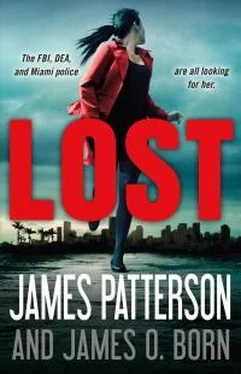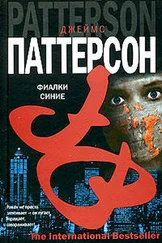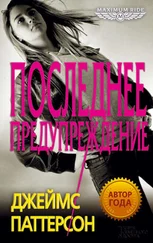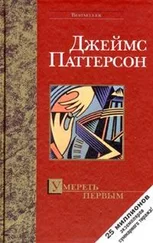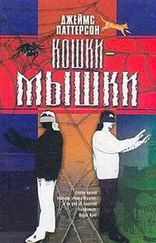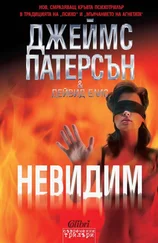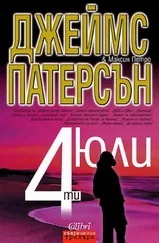“I’m sorry, did you want to play board games with them a little while longer? We need to get them home as soon as possible.”
“Fine, let me escort them home. That way I can confer with the Dutch authorities and maybe gather some more evidence on this shithead we locked up yesterday.”
“You have any idea how much that would cost?”
“You sound like it’s your money. Someone is gonna have to fly back with them. Why not me?”
“What if something happens here while you’re gone?”
“Steph Hall can handle anything that pops up. I thought that was why we had a whole task force to work with. You can’t imagine what these kids have been through. And it happens to kids every day. We’ve got to make a case on the entire ring smuggling people into the U.S. That might make a difference. I can’t do that if I let my best witnesses disappear.”
I studied the supervisor’s face. He didn’t look worried. He was thinking. Thinking this through to see how it might affect him over the next two years.
Finally, he sighed.
That was usually a good sign.
“Make the arrangements and be on your way in the next two days.”
Chapter 14
AT LUNCHTIME, I took all the kids out. No one seemed sorry to see us leave the office. Maybe I was already used to how much noise my new posse made. They were kids; what were you going to do? Maybe they were a little rambunctious. After all, most of them hadn’t had much parental supervision for a while. But God, I enjoyed spending time with them.
As we hustled out the door, Monnie said, “Where are we going?”
I said, “You can’t visit Miami and not have a little fun. We’re going to do some sightseeing and have a lot of fun.” I didn’t tell them that I also wanted to be away from the office in case my supervisor changed his mind and sent them back to Amsterdam with a DHS representative.
I drove through the city, giving the kids more fun facts, like how it was the only major city in the United States founded by a woman.
Annika asked, “Who was she and what’d she do?”
“Her name was Julia Tuttle. She did it by sending an orange to a railroad magnate named Henry Flagler. It was after a frost, and everyone thought the Florida orange crop was destroyed. She convinced Flagler to extend his railroad all the way to where Miami sits today.”
I glanced around the car and realized they needed a different form of fun.
We visited the Miami Seaquarium, where I had a contact who let us in for free. It’s amazing that a couple of University of Miami football tickets twelve years ago still got me free shit around the city. This city loved its team, warts and all.
The kids thought they were at SeaWorld. I explained to them that SeaWorld was two hundred and fifty miles north and this was a local attraction everyone loved.
Once they saw the sharks, they thought the Seaquarium might be the greatest place in the world. I agreed. I remembered my dad taking me here when I was a kid. I didn’t care if the other kids thought it was lame; I was with my dad. It was cool.
Monnie pointed to a flock of parrots noisily fighting in a tree. “I didn’t know there were parrots in the U.S.”
I smiled. “There weren’t, originally. People brought them to Miami as pets and let them go. Without natural predators, they multiplied fast. Now they’re everywhere.”
Finally, the kids were appreciating my Miami trivia.
After a couple of hours of fun, we got back in the car and started to make our way north toward my house. Joseph and I got into a deep debate about the merits of soccer versus American football. The next thing I knew, I’d bought a football at a local Walmart and we were in a park next to the Pompano Beach airport.
I explained the basic rules, which they seemed to have a hard time understanding. We tried some simple plays with me as a quarterback and each kid taking a turn as receiver. I told Joseph, “Run a pattern along the sideline, then cut to the middle, and I’ll drop a pass right over Michele into your hands.”
I called out a fake signal and Jacques hiked me the ball. I watched as Joseph ran in a random manner, went past Michele, then ran back toward me. I tossed the ball a few feet and he caught it.
When he was done, I said, “Why didn’t you run the pattern I suggested?”
He looked at me like a kid explaining something obvious to a parent and said, “I didn’t understand anything you said after Run .”
That made me laugh. Hard and loud.
After we were once more in the car and headed back to my house, Annika said in her elegant accent, “Did you play football in school?”
“I did. I even got a scholarship to play football at the University of Miami.”
Jacques was excited. “Did you play professionally after that?”
I chuckled. “No, I never got close to the NFL. I barely played at the University of Miami. My position coach reminded me often that I had run the slowest forty-yard dash of any tight end ever at the school.”
Olivia said, “What’s a tight end?”
That made the older kids laugh.
I said, “It’s a receiver who also blocks. Usually they’re bigger than wide receivers.”
Annika said, “You’re really big.”
I laughed. “Back then, I lifted a lot of weights, and I was thirty pounds heavier than I am now.”
“Did you like playing?”
“I did. It also paid for my schooling, and then, when I went back for law school, they gave me a huge discount. I’m pretty happy with my limited football career, even if I never did go pro.”
Joseph said, “Did you have a nickname? Like ‘the Rocket’ or ‘the Greatest’?”
After I finished laughing, I thought about how happy I was that no one from my old team had heard the question. Then I told them all my current nickname, “Anti.”
Annika said, “Like someone’s aunt?”
“No, like you’re against something or the opposite of something. Like anti-government means you’re against the government.”
“What are you against?”
I hesitated. “In this case, it’s a name people in the neighborhood gave me. They say that Ray Lewis is the greatest defensive player who ever came out of the U, so the real nickname they gave me was ‘Anti-Ray’ because I was the opposite of him. They were saying I was the worst offensive player to come out of the U. Over time everyone shortened it to just ‘Anti.’”
“Isn’t that an insult?”
“Yes and no. The local residents wouldn’t give me a street name unless they knew me and trusted me. I like to be called Anti by people in Liberty City. It means I made some kind of impact.”
Joseph said, “Should we call you Anti?”
“Not unless you want me to make up a mean nickname for you.”
Chapter 15
WE MADE IT back to my house in Coral Springs late in the afternoon. Lila met me at the door and said, “Tough day.”
That meant my mom wasn’t herself. Or, more accurately, that she was herself at a different time and place.
I followed the piano music, which was always great no matter what kind of day my mother was having. When I stepped into the small parlor, she looked up and said, “Hey, Chuck.”
Ugh. Chuck was my dad. He’d divorced my mom sixteen years ago, and that was where she’d flashed back to when she’d checked out for the day. I suppose that was a time when everything seemed to be going well. I had given up trying to understand this goddamned disease a long time ago. I just wanted my mom to be happy. I didn’t care what the doctors called the disorder; whether it was dementia or Alzheimer’s, she was just as lost to me. I felt like one of the pillars of my life was gone.
I pulled Lila into the kitchen and told her about my pending trip to Amsterdam with the kids. My sister poured her heart into working with special-needs children every day, and she still managed to deal with my mom without complaint. I felt guilty piling more on her.
Читать дальше
